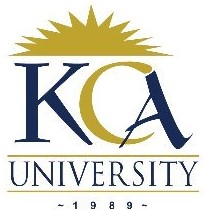
UNIVERSITY EXAMINATIONS: 2016/2017
EXAMINATION FOR THE DEGREE OF BACHELOR OF BUSINESS
INFORMATION TECHNOLOGY
BBIT 207 SYSTEMS DEVELOPMENT MANAGEMENT
DISTANCE LEARNING
DATE: DECEMBER, 2016 TIME: 2 HOURS
INSTRUCTIONS: Answer Question One & ANY OTHER TWO questions.
QUESTION ONE (Compulsory)
a) Discuss the conventional and human oriented views of ISD. (4 Marks)
b) Discuss the key drivers of knowledge management. (6 Marks)
c) Describe the approaches to addressing competitive effectiveness using IS/IT.
(6 Marks)
d) Distinguish between JAD and Stakeholder analysis. (2 Marks)
e) Describe the potential benefits and the potential blocks to problem cognition when using
techniques in system development. (4 Marks)
f) Define the term information systems development. (2 Marks)
g) An information systems development methodology is often considered to provide a framework
for the systems development process. What are the advantages and disadvantages of using a
standard systems development methodology for the development of information systems?
(6 Marks)
QUESTION TWO
a) Consider and describe the nature of analyst, methodology, and situation and their
interrelationships in terms of some of the systems development methodologies discussed
during this subject. (8 Marks)
b) Identify the outcomes of BPR programmes. (4 Marks)
c) Current trends in software engineering are moving away from the waterfall model for
large projects and moving toward iterative methods such as the spiral model. Discuss
what are we gaining and losing as a result (8 Marks)
QUESTION THREE
a) Describe a methodology which can be considered to reflect the “science” paradigm and a
methodology which can be considered to reflect the “systems” paradigm. Refer to the main
objectives, phases/activities, and deliverables of the methodology in your description.
Justify your classification of the methodologies. (10 Marks)
b) Systems analysts need to communicate and interact extensively with users. However the
“vocabulary” of systems development is often not familiar to users and the organisational
backgrounds and experience of systems analysts may be very different from those of users.
What problems might this cause during the requirements definition phase in particular, and
how might they be overcome? (10 Marks)
QUESTION FOUR
A company has over the years used software development methods that rely on documented
specifications and designs. Agile methods are being considered seriously in the pursuit of growth
and internationalisation of the business.
a) Explains the agile principles for rapid software development and justify its appropriateness as a
method for adoption. (12 Marks)
b) Discuss the view that modern life cycle models with their emphasis on prototyping, create
systems that are often fragmented and difficult to integrate; of unsatisfactory reliability,
performance, and functionality; and of limited longevity. (8 Marks)
QUESTION FIVE
a) Compare and contrast the following systems development methodologies (provide
relevant examples for each). (20 Marks)
i. Blended methodologies
ii. Object oriented methodologies
iii. People oriented methodologies
iv. Organisation oriented methodologies
